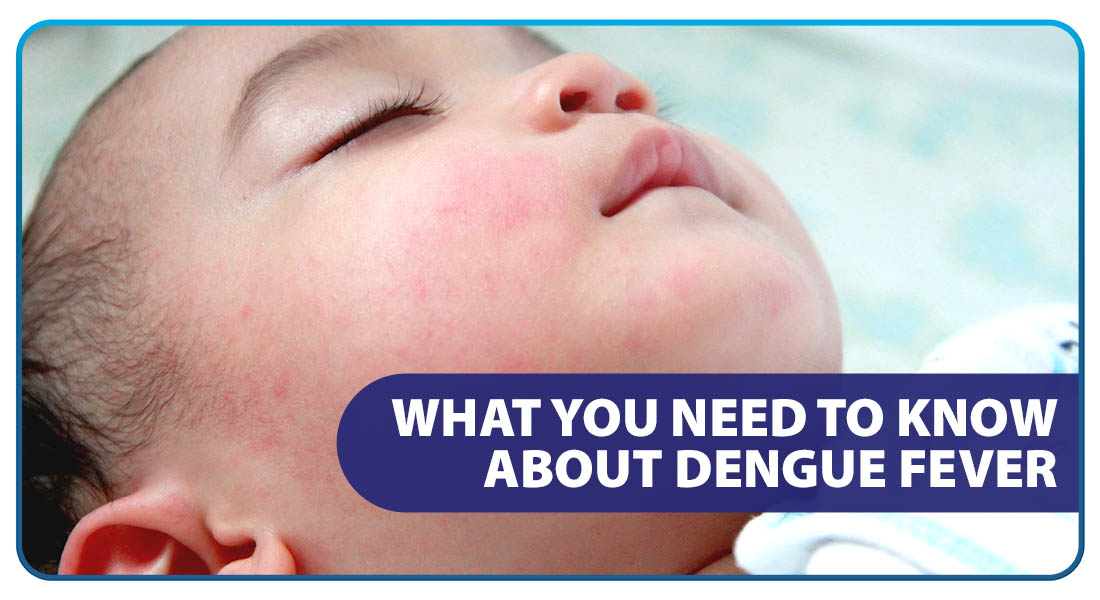Applying these practical preventive measures is the first step in avoiding dengue fever. Visit your nearest hospital if you suspect that you or any of your family members are showing any symptoms.
What is dengue?
Dengue fever is a mosquito-borne disease that is common in tropical countries like the Philippines. According to the Department of Health (DOH) “dengue is the fastest spreading vector-borne disease in the world, endemic in 100 countries,” the DOH also recorded a total of 185,000 cases of dengue in the Philippines last 2012-2016. Those who live in areas where dengue is endemic should exercise caution most especially during peak transmission in the rainy season (May-November). There is currently no cure for dengue, but the symptoms can be managed within a week after diagnosis.
Symptoms
The first warning sign to look out for is a high fever of 40°C or 104°F accompanied by a combination of any of the following:
- Muscle, bone, and joint pain
- Headache/nausea
- Vomiting
- Rashes
- Pain behind the eyes
Prevention
Since there is no available cure for dengue as of the moment, you can still take the necessary preventive measures to ensure that your family is protected from the disease.
- Cover and clean water containers on a regular basis. Common household items like pet water containers, planter dishes, and flower vases can serve as breeding grounds since mosquitoes like to lay their eggs in standing water.
- Invest in a mosquito net so you’re protected against insect bites when you sleep. Ensure that there are no holes and that it is properly sealed to get maximum protection.
- Purchase insecticides that are effective against mosquitoes and are safe to use inside your home. The use of mosquito coils may help but use with caution and keep away from children’s reach.
- Apply mosquito repellent all over your body—most especially during the rainy season or if you know that you will be exposed to insects. Consult a doctor first before using any kind of product on children.
- Although dengue is not spread from person to person, mosquitoes can become infected after it bites someone with dengue fever. This cycle therefore makes the infected mosquito capable of spreading dengue within your household.
Applying these practical preventive measures is the first step in avoiding dengue fever. Visit your nearest hospital if you suspect that you or any of your family members are showing any symptoms. Learn more about the fumigation services in your area most especially during the rainy season.
General disclaimer
Always consult your doctor regarding any concern about your health. Your doctor will be in the best position to give the appropriate medical advice. For suspected undesirable drug reaction, seek medical attention immediately and report to the FDA at www.fda.gov.ph and UNILAB, Inc. at 8-864522-1 (8-UNILAB-1) or productsafety@unilab.com.ph. Always buy from your trusted drugstores and retailers.


